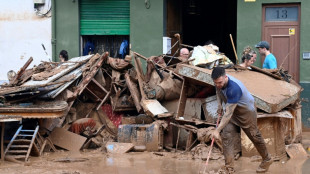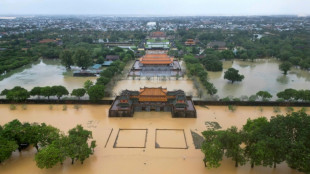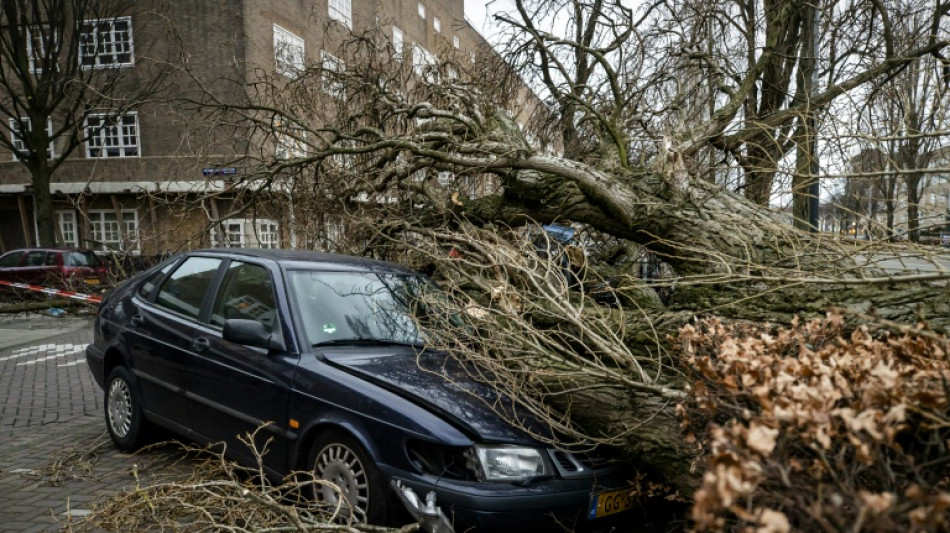
-
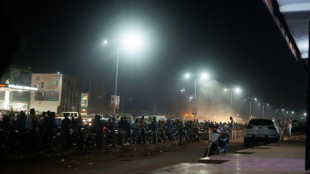 Jihadist fuel blockade makes life a struggle in Mali's capital
Jihadist fuel blockade makes life a struggle in Mali's capital
-
Uber plans San Francisco robotaxis in Waymo challenge

-
 Paramilitary chief vows united Sudan as his forces are accused of mass killings
Paramilitary chief vows united Sudan as his forces are accused of mass killings
-
Trump, Xi to meet seeking truce in damaging trade war

-
 Divided US Fed backs second quarter-point rate cut of 2025
Divided US Fed backs second quarter-point rate cut of 2025
-
'Amazing' feeling for Rees-Zammit on Wales return after NFL adventure

-
 'Cruel' police raids help, not hinder, Rio's criminal gangs: expert
'Cruel' police raids help, not hinder, Rio's criminal gangs: expert
-
S. African president eyes better US tariff deal 'soon'

-
 Sinner cruises in Paris Masters opener, Zverev keeps title defence alive
Sinner cruises in Paris Masters opener, Zverev keeps title defence alive
-
Winter Olympics - 100 days to go to 'unforgettable Games'

-
 Kiwi Plumtree to step down as Sharks head coach
Kiwi Plumtree to step down as Sharks head coach
-
US media mogul John Malone to step down as head of business empire

-
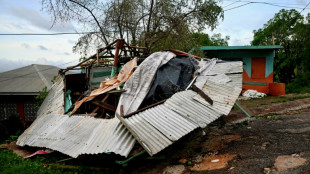 'Never been this bad': Jamaica surveys ruins in hurricane's wake
'Never been this bad': Jamaica surveys ruins in hurricane's wake
-
Zverev survives scare to kickstart Paris Masters title defence

-
 Rabat to host 2026 African World Cup play-offs
Rabat to host 2026 African World Cup play-offs
-
WHO urges Sudan ceasefire after alleged massacres in El-Fasher

-
 Under-fire UK govt deports migrant sex offender with £500
Under-fire UK govt deports migrant sex offender with £500
-
AI chip giant Nvidia becomes world's first $5 trillion company

-
 Arsenal depth fuels Saka's belief in Premier League title charge
Arsenal depth fuels Saka's belief in Premier League title charge
-
Startup Character.AI to ban direct chat for minors after teen suicide

-
 132 killed in massive Rio police crackdown on gang: public defender
132 killed in massive Rio police crackdown on gang: public defender
-
Pedri joins growing Barcelona sickbay

-
 Zambia and former Chelsea manager Grant part ways
Zambia and former Chelsea manager Grant part ways
-
Russia sends teen who performed anti-war songs back to jail

-
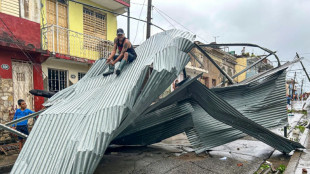 Caribbean reels from hurricane as homes, streets destroyed
Caribbean reels from hurricane as homes, streets destroyed
-
Boeing reports $5.4-bn loss on large hit from 777X aircraft delays

-
 Real Madrid's Vinicius says sorry for Clasico substitution huff
Real Madrid's Vinicius says sorry for Clasico substitution huff
-
Dutch vote in snap election seen as test for Europe's far-right
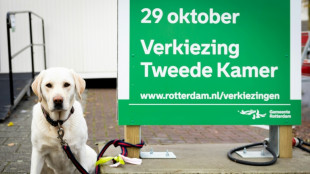
-
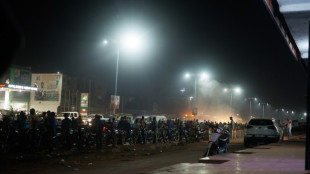 Jihadist fuel blockade makes daily life a struggle for Bamako residents
Jihadist fuel blockade makes daily life a struggle for Bamako residents
-
De Bruyne goes under the knife for hamstring injury

-
 Wolvaardt's 169 fires South Africa to 319-7 in World Cup semis
Wolvaardt's 169 fires South Africa to 319-7 in World Cup semis
-
EU seeks 'urgent solutions' with China over chipmaker Nexperia

-
 Paris prosecutor promises update in Louvre heist probe
Paris prosecutor promises update in Louvre heist probe
-
Funds for climate adaptation 'lifeline' far off track: UN
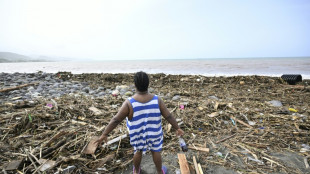
-
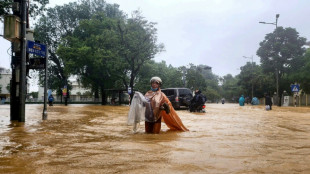 Record Vietnam rains kill seven and flood 100,000 homes
Record Vietnam rains kill seven and flood 100,000 homes
-
Markets extend record run as trade dominates

-
 Sudan govt accuses RSF of attacking mosques in El-Fasher takeover
Sudan govt accuses RSF of attacking mosques in El-Fasher takeover
-
Rain washes out 1st Australia-India T20 match
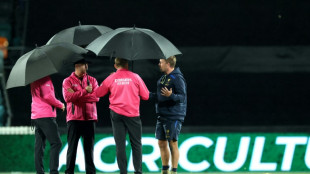
-
 Spain's Santander bank posts record profit
Spain's Santander bank posts record profit
-
FIA taken to court to block Ben Sulayem's uncontested candidacy

-
 Chemicals firm BASF urges EU to cut red tape as profit dips
Chemicals firm BASF urges EU to cut red tape as profit dips
-
Romania says US will cut some troops in Europe

-
 Israel hits dozens of targets as Gaza sees deadliest night since truce
Israel hits dozens of targets as Gaza sees deadliest night since truce
-
Mercedes-Benz reassures on Nexperia chips as profit plunges
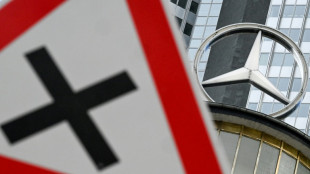
-
 France tries Bulgarians over defacing memorial in Russia-linked case
France tries Bulgarians over defacing memorial in Russia-linked case
-
BBC says journalist questioned and blocked from leaving Vietnam

-
 UK drugmaker GSK lifts 2025 guidance despite US tariffs
UK drugmaker GSK lifts 2025 guidance despite US tariffs
-
Mercedes-Benz profit plunges on China slump and US tariffs
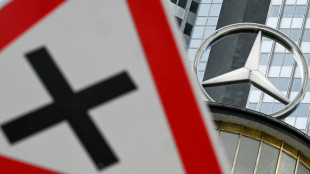
-
 South Korea gifts Trump replica of ancient golden crown
South Korea gifts Trump replica of ancient golden crown
-
Record Vietnam rains kill four and flood 100,000 homes
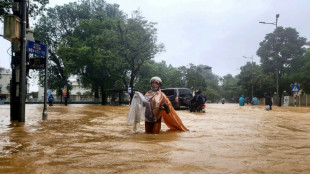

13 die as Storm Eunice leaves thousands in Europe without power
Emergency crews Saturday battled to restore power to hundreds of thousands of homes in Britain after Storm Eunice carved a deadly trail across Western Europe and left transport networks in disarray.
At least 13 people were killed by falling trees, flying debris and high winds in Britain, Ireland, the Netherlands, Belgium, Germany and Poland, emergency services said.
Train operators in Britain urged people not to travel, with trees still blocking several lines after most of the network was shut down when Eunice on Friday brought the largest wind gust ever recorded in England -- 122 miles (196 kilometres) per hour.
The train network in the Netherlands was also paralysed, with no Eurostar and Thalys international services running from Britain and France after damage to overhead power lines.
France was also grappling with rail disruption and about 37,000 households were without power, while some 8,000 remained cut off in Ireland and 194,000 in Poland.
The UK was worst hit by power cuts with nearly 400,000 homes cut off nationwide after one of the most powerful tempests since the "Great Storm" hit Britain and northern France in 1987, sparking the first-ever "red" weather warning for London on Friday.
The Met Office, Britain's meteorological service, issued a less-severe "yellow" wind warning for much of the south coast of England and South Wales on Saturday, which it said "could hamper recovery efforts from Storm Eunice".
Scientists said both the 1987 storm and Eunice packed a "sting jet", a rarely seen meteorological phenomenon borne out of an unusual confluence of pressure systems in the Atlantic that magnified the effects on Friday.
Planes struggled to land in high winds, a section of roof on London's O2 Arena was shredded, and the spire of a church in the historic city of Wells, southwest England, crashed to the ground.
The UK's total bill for damage could exceed £300 million ($410 million, 360 million euros), according to the Association of British Insurers, based on repairs from previous storms.
- 'Explosive storms' -
Hundreds of flights were cancelled or delayed at London's Heathrow and Gatwick airports and Schiphol in Amsterdam.
One easyJet flight from Bordeaux endured two aborted landings at Gatwick -- which saw wind gusts peak at 78 miles per hour -- before being forced to return to the French city.
Ferries across the Channel, the world's busiest shipping lane, were suspended, before the English port of Dover reopened Friday afternoon.
London's rush-hour streets, where activity has been slowly returning to pre-pandemic levels, were virtually deserted Friday as many heeded government advice to stay at home.
The London Fire Brigade declared a "major incident" after taking 550 emergency calls in just over two hours -- although it complained that several were "unhelpful", including one from a resident complaining about a neighbour's garden trampoline blowing around.
The RAC breakdown service said it had received unusually low numbers of call-outs on Britain's main roads, indicating that motorists were "taking the weather warnings seriously and not setting out".
Experts said the frequency and intensity of the storms could not be linked necessarily to climate change.
Therefore, he said, "flooding from coastal storm surges and prolonged deluges will worsen still further when these rare, explosive storms hit us in a warmer world".
A.Gasser--BTB

